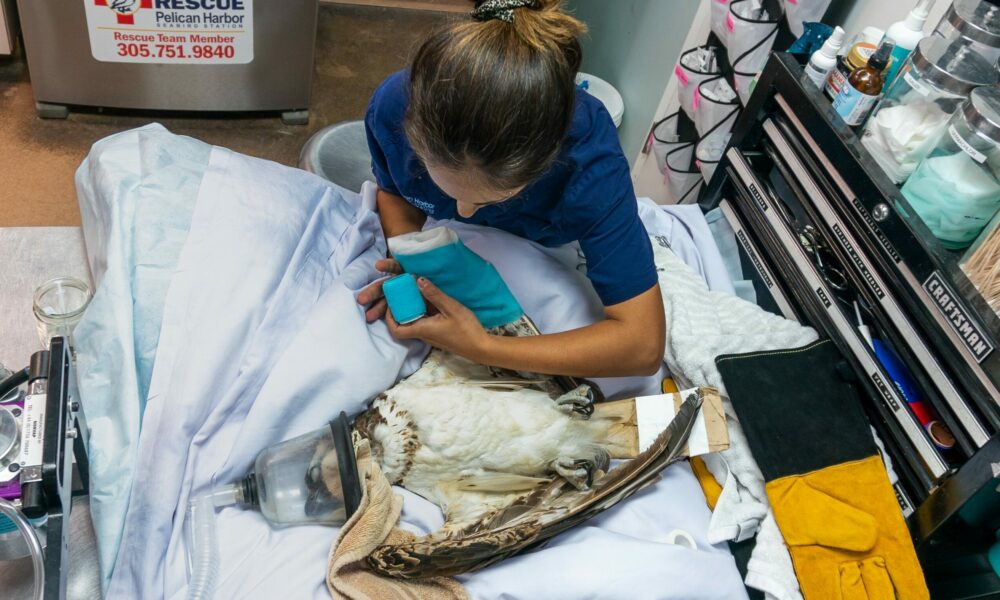

Today we’d like to introduce you to Hannah McDougall.
Hi Hannah, so excited to have you with us today. What can you tell us about your story?
Pelican Harbor Marina and nearby Bird Key have long been magnets for seabirds and shorebirds in Miami. Back in 1980, retired couple Harry and Darlene Kelton moved their houseboat to the Marina where they encountered an injured Brown Pelican. Despite having no experience in animal care, they removed a fishhook from the bird’s mouth and nursed it back to health. So was born the Pelican Harbor Seabird Station.
Over time, others joined the cause to rehabilitate the then-endangered brown pelicans, with veterinarian Jim McCoy volunteering his time to assist in surgeries and procedures. In 1992, the Miami Dade Parks Department provided land at the eastern side of the marina, where our current facility still stands.
One year later, Wendy Fox moved to Miami and began volunteering at PHSS, bringing her son Brian along. By 2001, she had become Director and President of the Board, following Harry’s retirement and Darlene’s passing. PHSS continued to develop into a leader in brown pelican care, with Wendy training rehabilitators in the U.S. Virgin Islands, and the Station staff rehabilitating pelicans contaminated in the Deepwater Horizon oil spill.
A dedicated advocate for pelicans and all wildlife was lost in August 2011 when Wendy succumbed to cancer. As a testament to her love and concern for the Seabird Station and its mission when Wendy felt she could no longer fulfill her duties, she stepped down only after ensuring her son Brian would move back home and continue the work as executive director.
Under the leadership of Brian Fox, PHSS maintained its focus on seabirds and shorebirds, primarily the brown pelican. He focused on increasing the quality of animal care and upgrading the facilities. With this in mind, he hired Jessica Cline, an experienced wildlife rehabilitator with a degree in biology to run the clinic.
When Brian left to pursue other interests Jessica was appointed Interim Director where she continued to emphasize animal care and instituted an in-house training program for staff, interns, and volunteers. PHSS had quickly gone from treating a few hundred animals a year to caring for thousands of sick, injured, and orphaned wildlife patients annually.
To help manage this increase in work, Christopher Boykin joined the team as Executive Director in the fall of 2014. During his time in this role, he doubled the operating budget and expanded staff to accommodate the dramatic increase in patient loads. He also devoted efforts to increasing our community presence and expanding our donor network. Christopher left PHSS in 2023 to pursue other passions, and Chloe Chelz took the helm as Acting Executive Director.
We all face challenges, but looking back would you describe it as a relatively smooth road?
There is still significant work to be done to reduce wildlife injuries caused by human activity, expand our education and conservation efforts, and raise funds for a larger and better-equipped facility to meet our needs.
Our current 950-sq.-ft. hospital was built over 30 years ago to care for a few hundred pelicans annually. Some thirty years later, we have expanded our mission to include nearly all native wildlife, and due to the ever-increasing threats to our wildlife population, we now treat 2,100+ patients a year of over 130 distinct species.
Despite our best efforts to adapt, we have no room to support the significant increase in patient load. We have no education center to bring schools on-site to ensure that future generations understand the importance of conservation in the community. We have no ICU for our patients in the most critical condition.
We lack quarantine quarters so are unable to accept certain species in need. We have outgrown our beloved Seabird Station and need to build a new space that will facilitate strong strides in the preservation and protection of native species through educational and scientific means.
After spending several years exploring solutions, the perfect property finally became available: the “Little River Preserve” at 399 NE 82nd Terrace. Previously owned by Miami history icon Julia Tuttle, this idyllic 2.6-acre property is truly an urban oasis.
With open fields and old-growth tree canopies, this expansion will increase our property size by 14 times, providing plenty of room for flight cages and appropriately sized habitats for our patients and education ambassador animals. Our new wildlife hospital and nature center will be seven times larger than our current facility, allowing us to provide state-of-the-art individualized care for every one of our patients.
As a historic Tequesta Native American site, the property will also serve as a nature park and education center. The new facility will be environmentally friendly and will be undergoing Green Globes certification. We have nearly reached our fundraising goal of $ 15 million to undergo this expansion but we still have a ways to go. Visit pelicanharbor.org/capitalcampaign to learn more about this project and explore ways to give!
We’ve been impressed with Pelican Harbor Seabird Station, but for folks who might not be as familiar, what can you share with them about what you do and what sets you apart from others?
Pelican Harbor Seabird Station was founded in 1980 for the purpose of caring for injured Brown Pelicans and has since grown into an internationally recognized center for wildlife rehabilitation.
As a non-profit 501(c)(3) charity, we are not affiliated with any government agencies and therefore rely solely on public contributions to fund our work. We admit patients from every municipality in Miami-Dade County, treating 2,209 patients in 2023 and helping to provide care for over 43,000 animals in need since our inception.
Beyond our wildlife rehabilitation program, we help to support our local communities in other ways, providing robust educational programming to local schools, libraries, and community centers, as well as assisting local municipalities and residents with a humane resolution of human-wildlife conflicts. We also pair with other organizations and government agencies on research efforts that seek to protect wildlife.
What matters most to you? Why?
Being able to make a tangible difference. Whether it be giving a suffering animal a second chance at life, helping to inform positive change, or seeing the wonder in a child’s eyes when they have the opportunity to see our wildlife up close.
Contact Info:
- Website: pelicanharbor.org
- Instagram: www.instagram.com/seabirdstation
- Facebook: facebook.com/pelicanharbor
- Linkedin: www.linkedin.com/company/seabirdstation
- Twitter: twitter.com/seabirdstation
- Youtube: youtube.com/seabirdstation
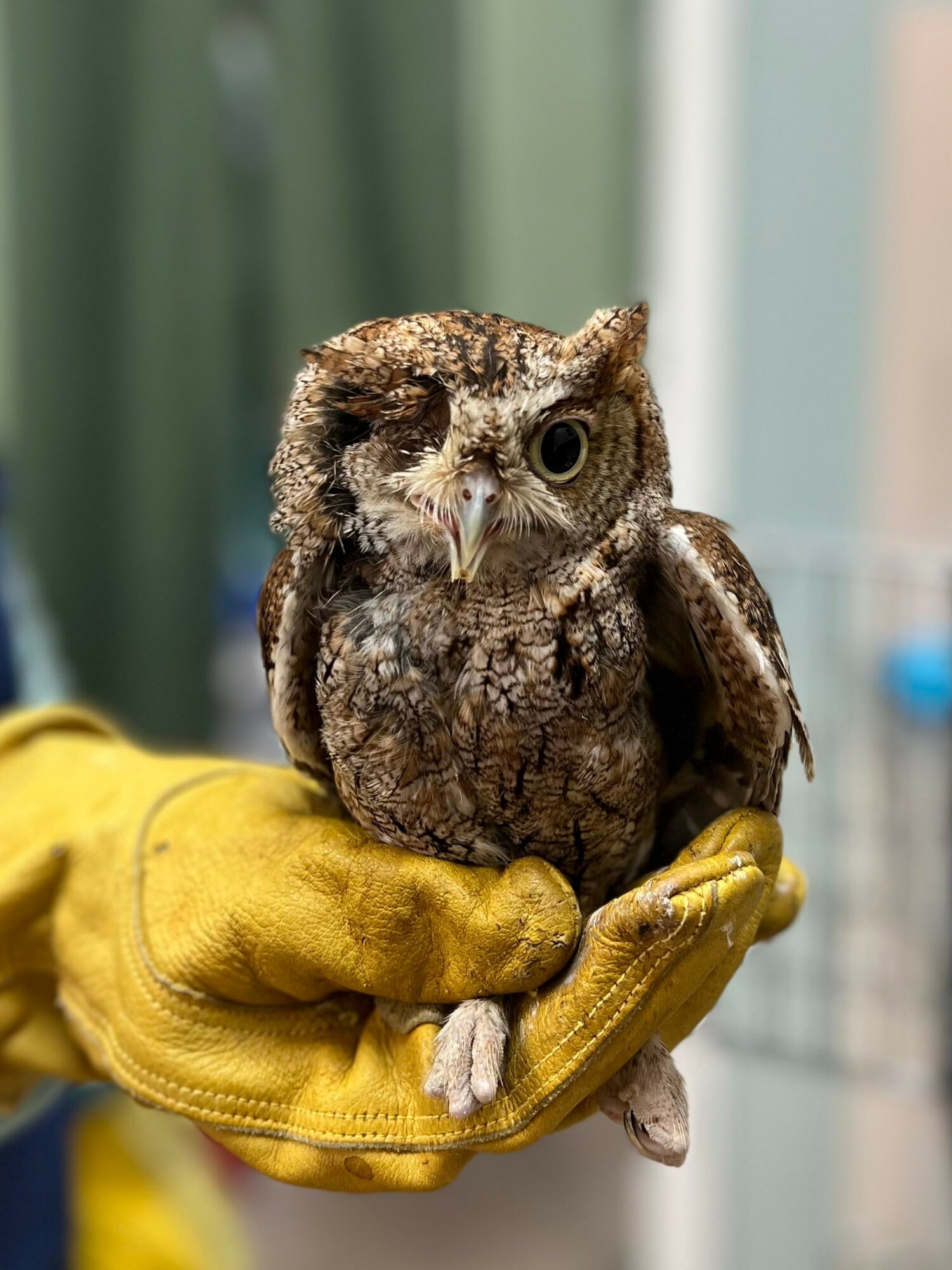
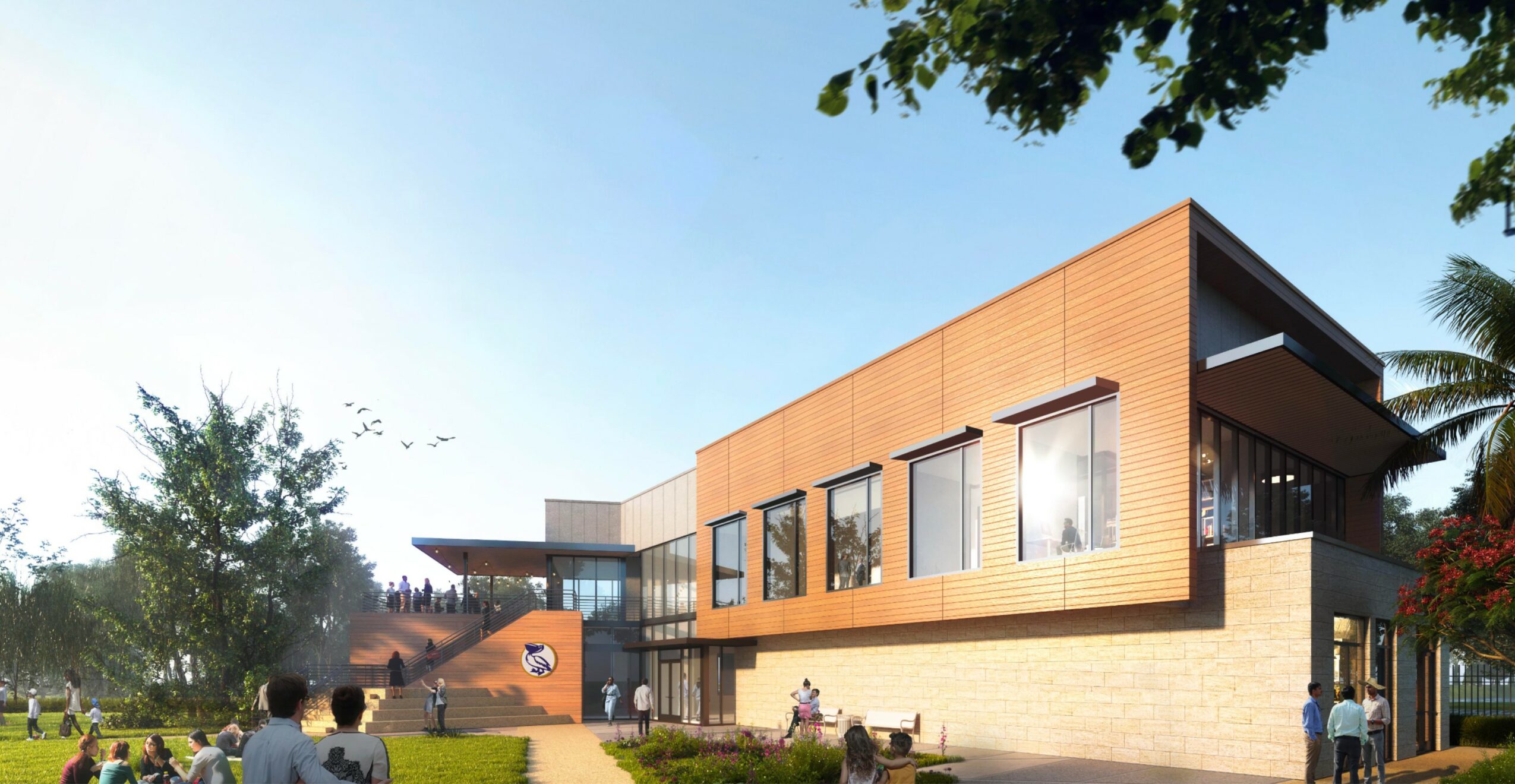
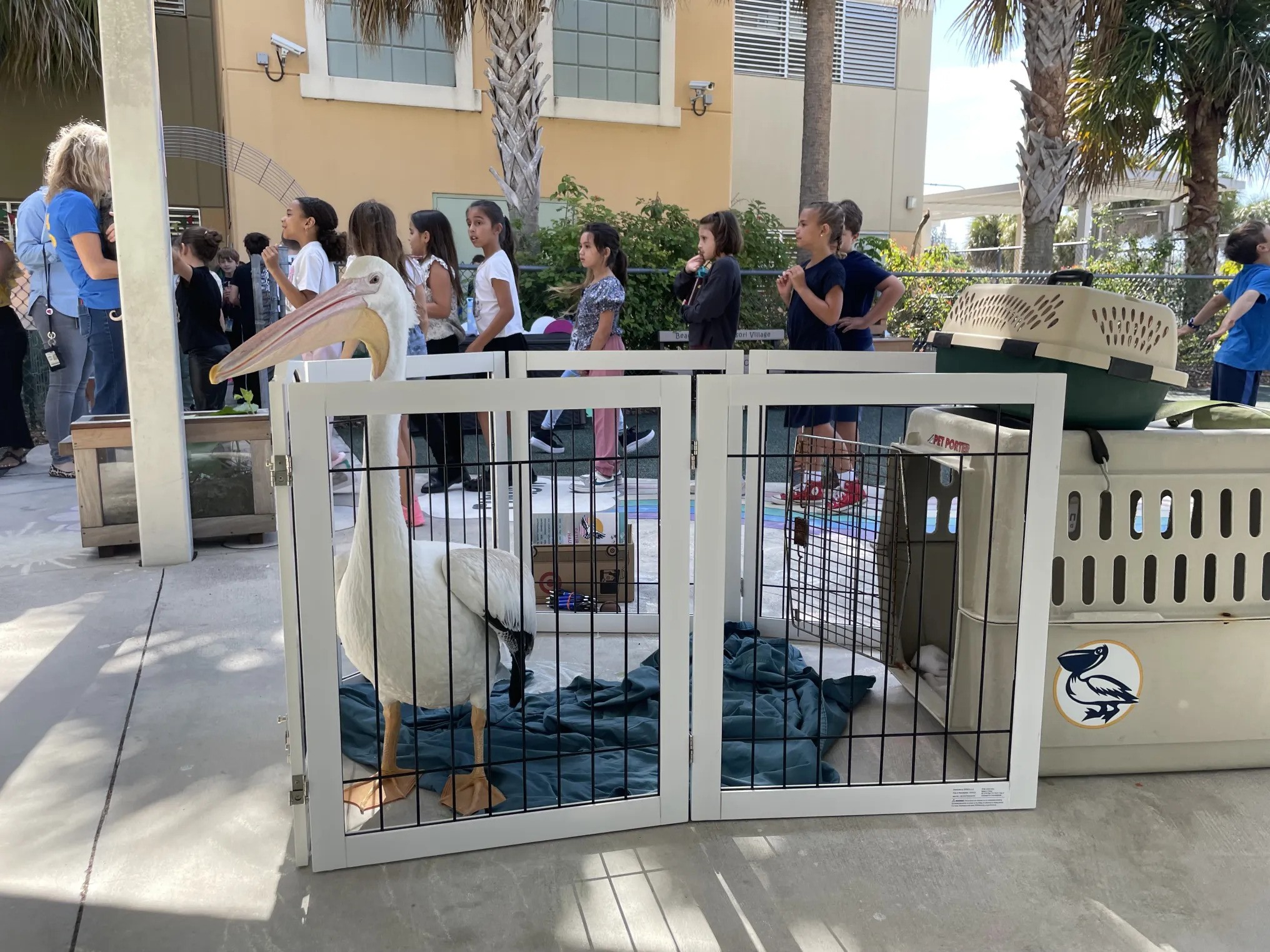
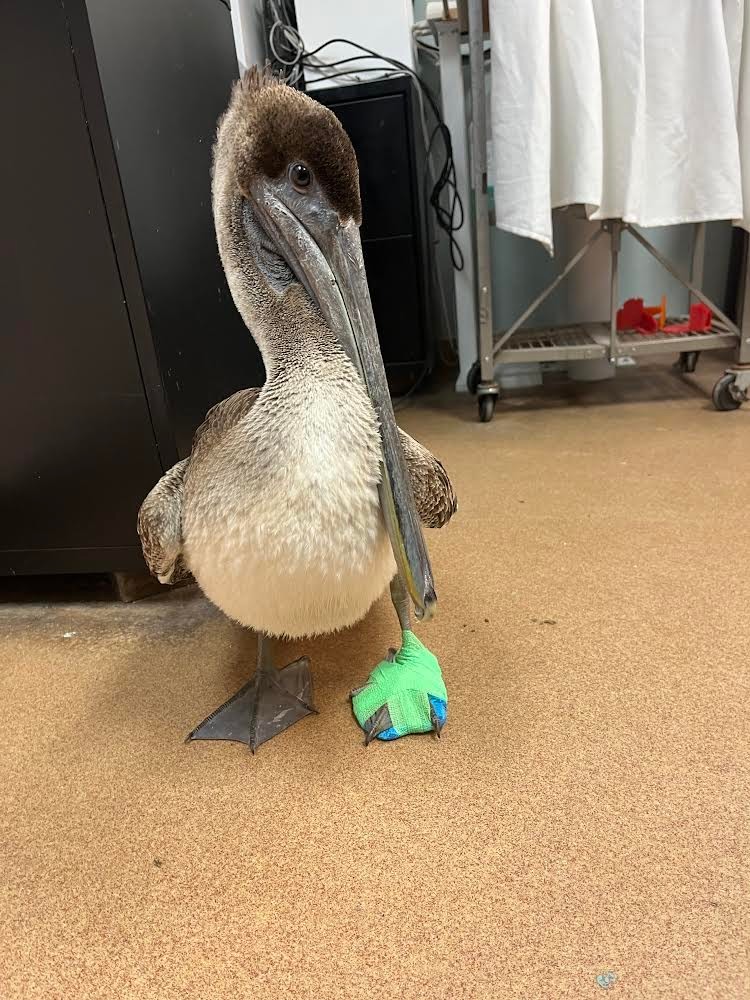
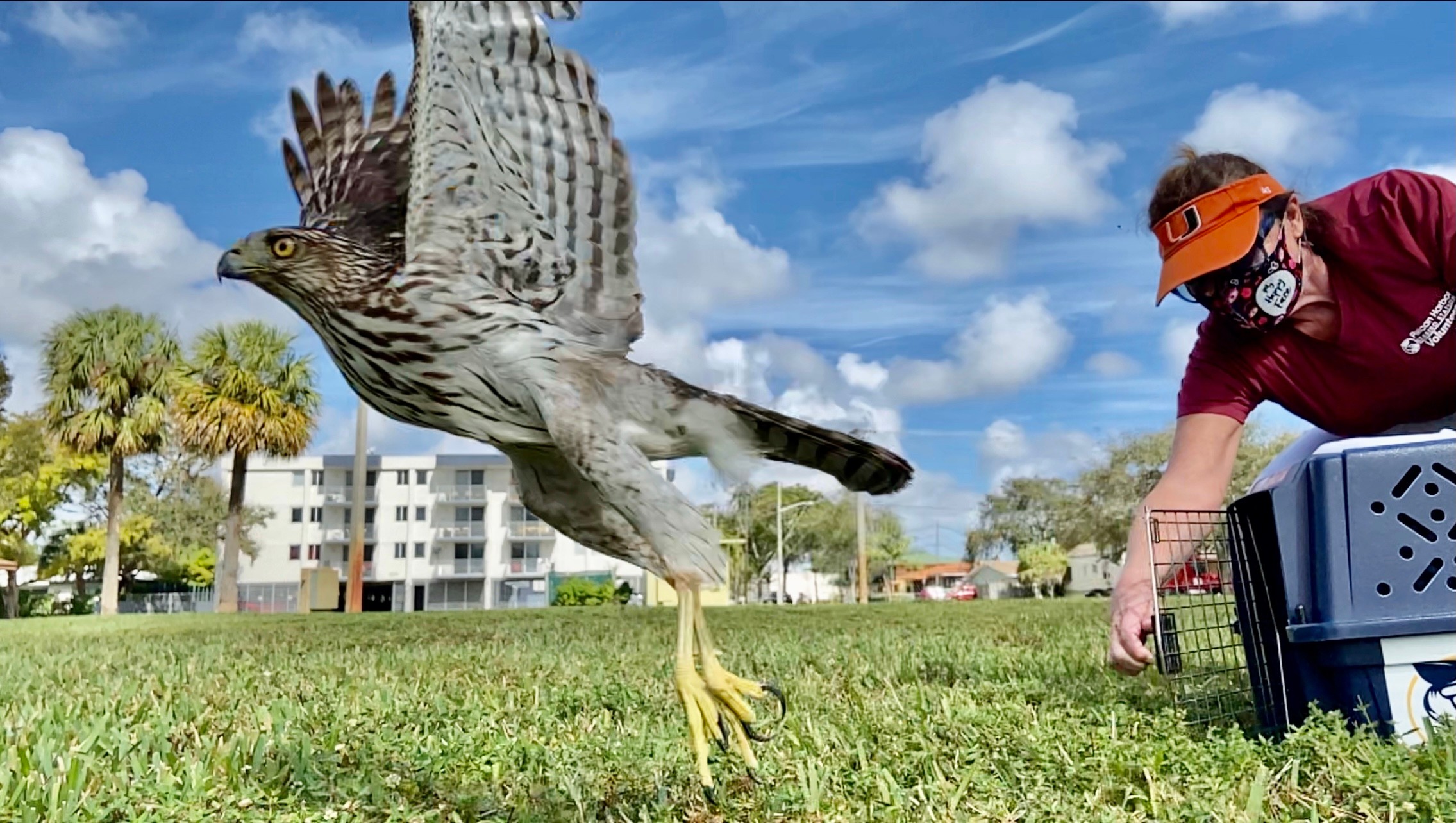

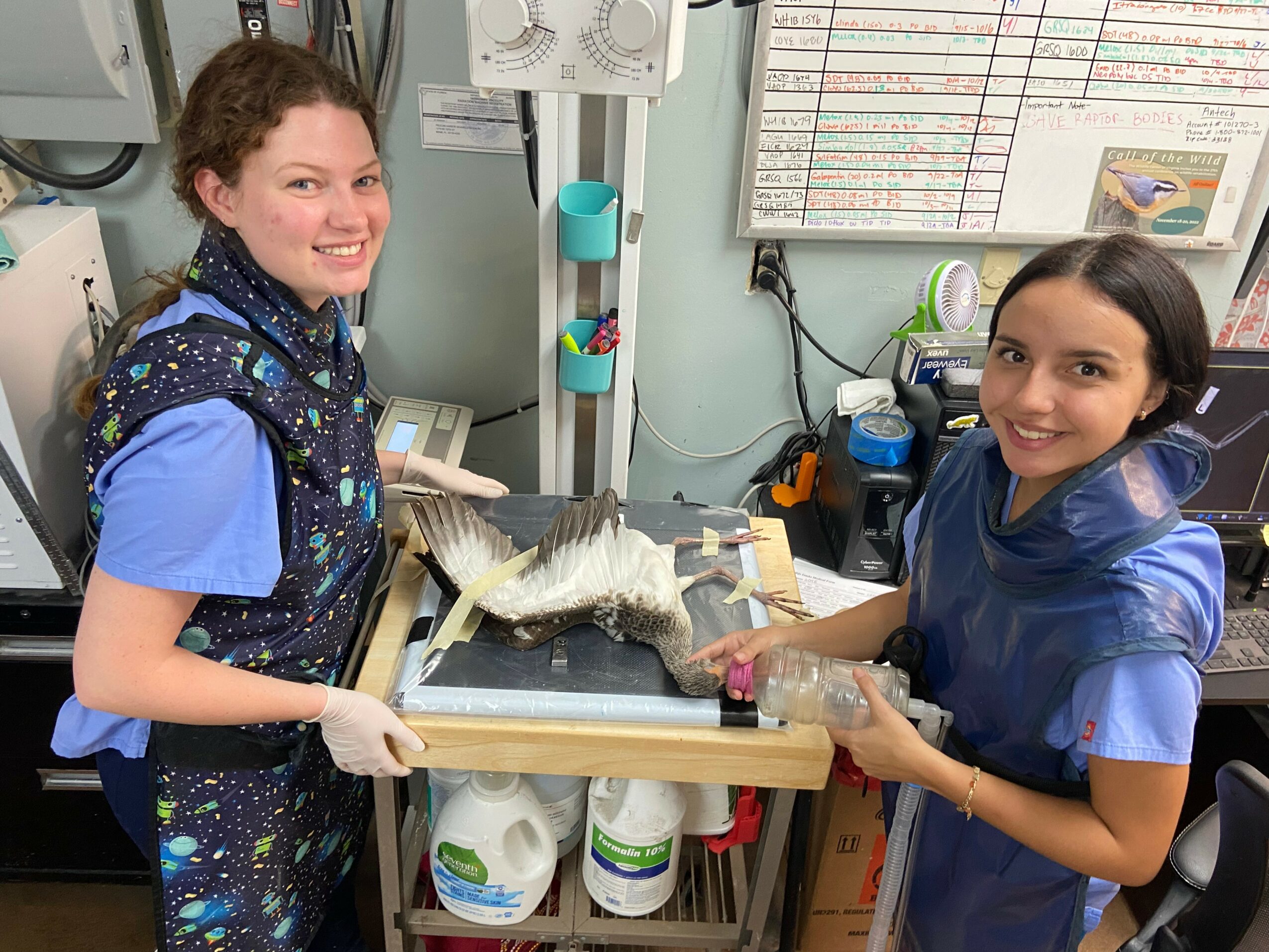
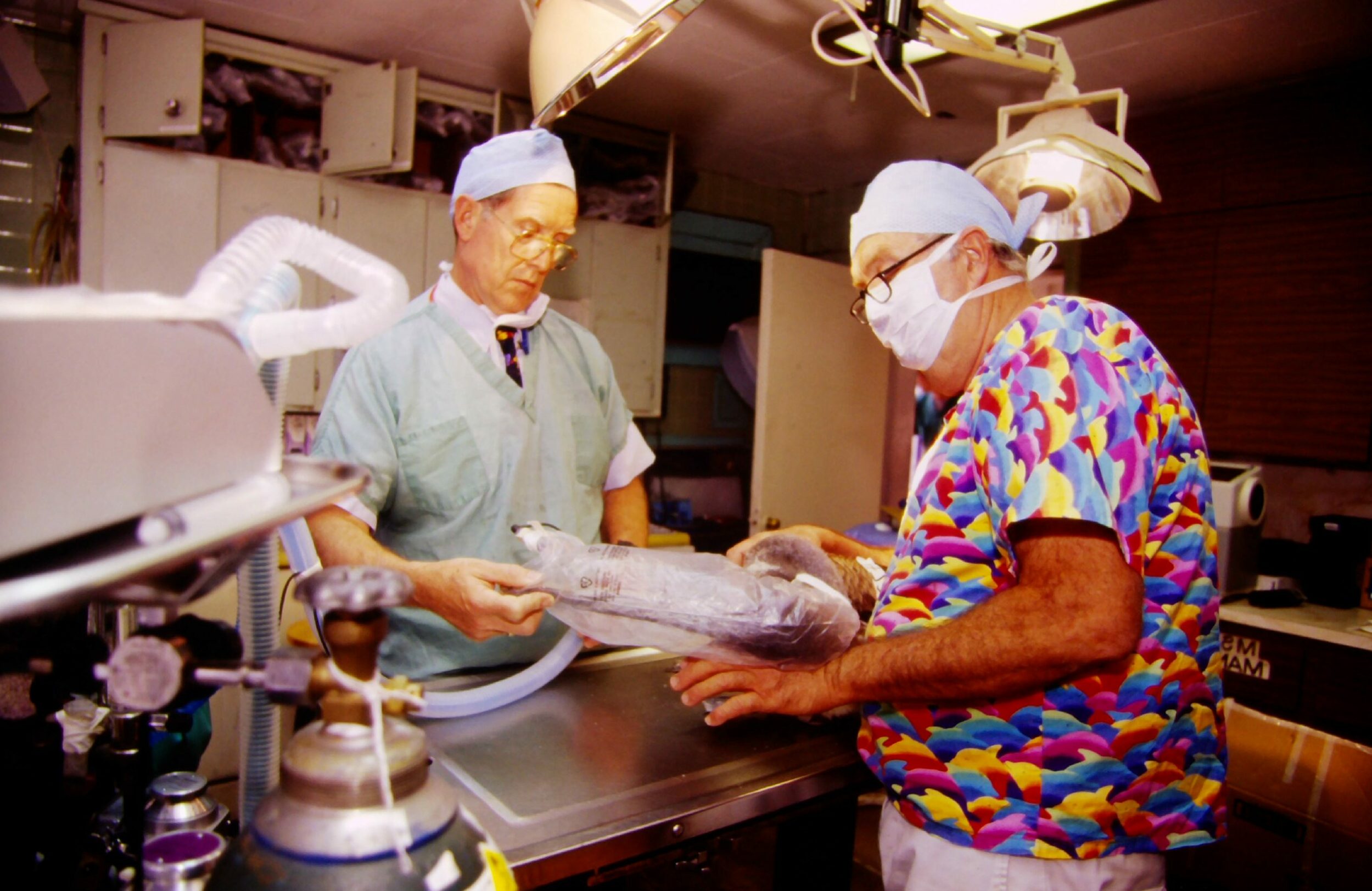 Image Credits
Image Credits
Pelican Harbor Seabird Station












